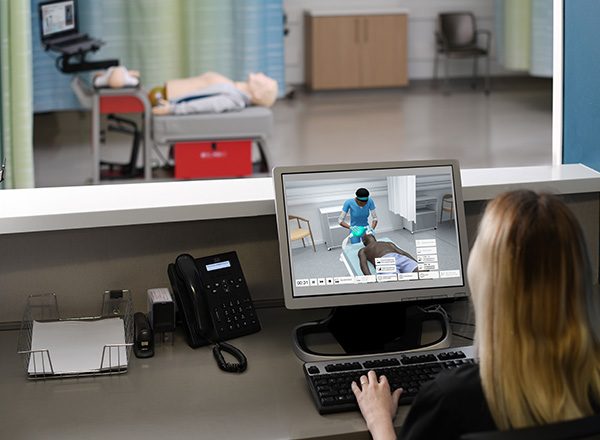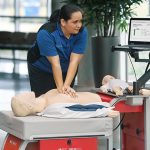Why do you take BLS, ACLS and PALS training? Is it because your employer requires you to do so? Is it because of The Joint Commission requirements for your hospital? Is it to make you more confident in your ability to save the life of a patient in cardiac arrest? All of the above?
Currently, the national average for in-hospital cardiac arrest survival to discharge is 26%. We know from Get with the Guidelines—Resuscitation data that there’s significant variability in resuscitation care across US hospitals: a patient’s odds for surviving a cardiac arrest varies by up to 42% depending on the hospital! While it is not clear what factors are creating this variability in care, high-quality CPR is the single biggest influence on cardiac arrest survival. Did you know a study published last year showed that AHA Guidelines-compliant CPR was only delivered 11% of the time during pediatric cardiac arrests? This reinforces the clinical knowledge versus performance gap that has been known since at least 2005, when two JAMA studies showed that both pre-hospital and in-hospital healthcare professionals were not routinely providing high-quality CPR during actual cardiac arrests.
I am confident that all healthcare professionals bring their best thinking and skills when treating a cardiac arrest patient. So why is BLS performance so variable? Quite simply, high-quality BLS requires real skills that science shows decay over 3-6 months. I cannot think of anything where practicing once every two years ensures competence and BLS skills are no different: attending a class once every two years is insufficient to maintain skill competence.
There are three critical components to achieving and maintaining verified CPR competence:
- Quarterly skills refreshers
- Quantitative feedback
- Real-time debriefing
The science is clear that verified CPR competence cannot be achieved by using:
- Instructors: humans are not able to, in real-time, simultaneously judge compression depth, rate, recoil, hand placement and ventilations with adequate accuracy
- Simple knowledge checks or written exams: cardiac arrest survival depends on high-quality CPR performance, not simply knowledge of what to do
- Infrequent skills refreshers: BLS skills decay over 3-6 months, less frequent refreshers over 9-24 months will not ensure all staff retain verified CPR competence
We are committed to helping you and your teams attain verified CPR competence, improve your CPR quality and help you save more lives from cardiac arrest. The science is clear and now that we know better, we must do better together.
Watch the recording of my webinar to learn more: Resuscitation Competence: An Algorithm for Saving Lives.








